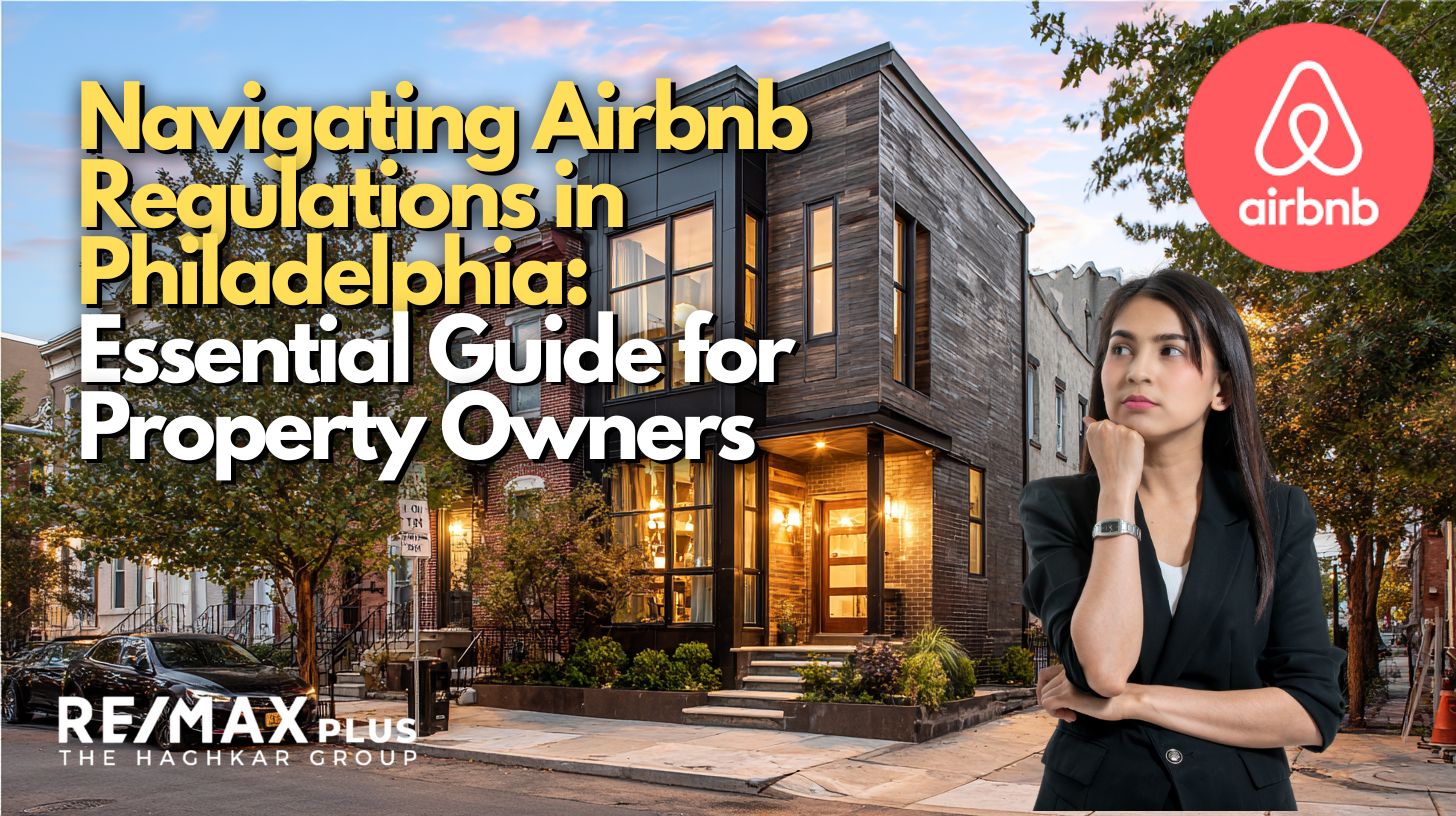
12 Aug Navigating Airbnb Regulations in Philadelphia
Navigating Airbnb Regulations in Philadelphia: A Guide for Property Owners
Estimated Reading Time: 7 minutes
Key Takeaways
- Understanding Airbnb regulations is essential for property owners in Philadelphia.
- Licensing and zoning approvals are critical based on property classifications.
- Compliance with safety regulations and tax obligations promotes sustainability and profitability.
- Exploring broader opportunities in neighboring NJ can enhance income potential.
Table of Contents
- Understanding Airbnb Regulations in Philadelphia
- Vacation Rental Permit Requirements
- Short Term Rental Insurance Coverage
- Airbnb Income Potential
- Airbnb Occupancy Rate Calculator
- Best Airbnb Neighborhoods in NJ
- Maximizing Compliance and Profitability
- Final Thoughts on Airbnb Regulations in Philadelphia
Understanding Airbnb Regulations in Philadelphia
In Philadelphia, stays under 30 days are treated as short-term rentals, requiring specific licensing and zoning approvals. The city has established a framework to categorize properties into two types: Limited Lodging, which is a primary residence, and Visitor Accommodation, which is a non-primary residence. Each category has unique licensing requirements, with Limited Lodging requiring a Limited Lodging Operator License and Visitor Accommodation needing a Rental License with a hotel designation (source).
Zoning Laws: Before listing a property on Airbnb, owners must secure a zoning permit based on its classification—either Limited Lodging or Visitor Accommodation (source).
Tax Obligations: Hosts must adhere to tax obligations, including the city’s hotel tax and Pennsylvania’s hotel occupancy tax. Although platforms like Airbnb often automate collection and remittance, property owners remain responsible for correct tax filings (source).
Further compliance includes maintaining safety features such as smoke and CO alarms, adhering to noise regulations, and ensuring proper occupancy limits (source).
Vacation Rental Permit Requirements
Navigating vacation rental permit requirements in Philadelphia involves several crucial steps:
- Business Tax Account & License: Begin by registering for a Philadelphia business tax account and obtaining a Commercial Activity License (source).
- Zoning Permits: Apply for a Zoning Permit suitable for either Limited Lodging or Visitor Accommodation (source).
- Licenses: Obtain the necessary licenses—either a Limited Lodging Operator License for primary residences or a Rental License with hotel designation for non-primary (source).
- Safety Compliance: Ensure properties meet safety regulations, including operational smoke alarms, carbon monoxide detectors, and clear posting of local contacts and trash schedules (source).
Timeline & Costs: Securing permits can take several weeks, involving fees like a $150 annual license for Limited Lodging Operator License and a $90 Rental License renewal. Non-compliance risks platform removal and potential fines from the city (source).
Short Term Rental Insurance Coverage
Standard insurance policies may not cover all activities related to short-term rentals, highlighting the need for specialized short-term rental insurance coverage. Such coverage ensures protection against guest injuries and damage or theft (General best practice).
Recommended Insurance Types:
- Commercial Liability: Covers potential guest injuries.
- Property Insurance: Protects against damage and theft.
- Loss of Income: Provides business interruption compensation for certain disruptions.
Comparing insurance providers and understanding coverage terms relative to your specific property requirements can significantly protect your investment (General best practice).
Airbnb Income Potential
Airbnb income potential in Philadelphia varies based on location, property size, and offered amenities. For instance, properties close to Center City, universities, and event venues often command higher rental rates due to increased demand (source).
While property size and amenities such as parking and renovated interiors significantly influence profitability, understanding local regulations and maintaining compliance badges can further enhance income potential (General analysis).
Airbnb Occupancy Rate Calculator
Understanding potential revenue involves using tools like the Airbnb occupancy rate calculator. This tool calculates potential earnings by analyzing factors like average daily rates, guest estimates, and fixed costs.
Using the Calculator:
- Identify comparable listings in your area.
- Input relevant data: average daily rates, guest estimates, etc.
- Analyze the data to estimate occupancy rates and financial outcomes (source).
By leveraging these insights, property owners can make informed decisions to maximize their rental’s success potential.
Best Airbnb Neighborhoods in NJ
When exploring opportunities beyond Philadelphia, considering the best Airbnb neighborhoods in NJ can enhance profitability. Beachfront and transit-accessible locales in New Jersey offer advantageous opportunities despite varying regulations (General comparison).
- Profitability Factors: New Jersey shore towns often achieve high summer rental rates but contend with seasonal challenges.
- Regulation Complexity: Many NJ towns have specific ordinances similar to Philadelphia, requiring careful examination of regulatory requirements.
Property owners should align their neighborhood choices with the target audience, considering the demands for leisure versus business accommodations (General framing).
Maximizing Compliance and Profitability
Achieving success in Airbnb ventures lies in maximizing compliance and profitability. Following regulations ensures sustainable operations and profitability. Here’s how property owners can streamline processes:
- Complete Permits: Ensure zoning and licensing are in order before listing (source).
- Safety First: Adopt rigorous safety standards beyond minimum requirements (source).
- Improve Guest Experience: Focus on hygiene, responsive communication, and comprehensive amenities to enhance occupancy rates.
- Strategic Risk Management: Balance insurance coverage with proper platform protection and liability limits (General best practice).
By adhering to regulations and enhancing guest experiences, property owners can achieve longevity and profitability in their Airbnb endeavors.
Final Thoughts on Airbnb Regulations in Philadelphia
Philadelphia’s short-term rental market offers abundant opportunities when property owners comply with the necessary zoning, licensing, and tax regulations. It is imperative to understand the Limited Lodging vs. Visitor Accommodation framework and ensure annual renewal of licenses. Before investing in a short-term rental property, owners should conduct thorough research, including a detailed analysis of occupancy rates, potential income, and insurance coverage for protection.
For those considering this venture, consulting with local experts or resources can clarify the nuances of Airbnb regulations in Philadelphia. Whether you’re new to the scene or looking to expand, RE/MAX Plus experts in real estate are well-versed in helping navigate these complexities, ensuring a smoother journey in the world of short-term rentals. Reach out today to explore your options and make your Airbnb property a success.
Do you have a short-term Rental or looking to obtain one?
Connecting with local real estate experts can provide invaluable guidance in navigating the Airbnb regulations. Contact RE/MAX Plus today for personalized help in your short-term rental journey.
Relevant Internal Links
- For insights on how to sell your home in a buyer’s market, see this article.
- Learn about the essentials of first-time home buying in our guide here.
- Check out our tips to increase your home appraisal value here.
- For tips on staging your home for sale, read our guide here.
- If you want to improve your home’s curb appeal, you can find practical advice here.

